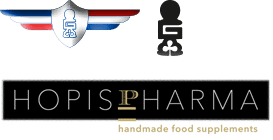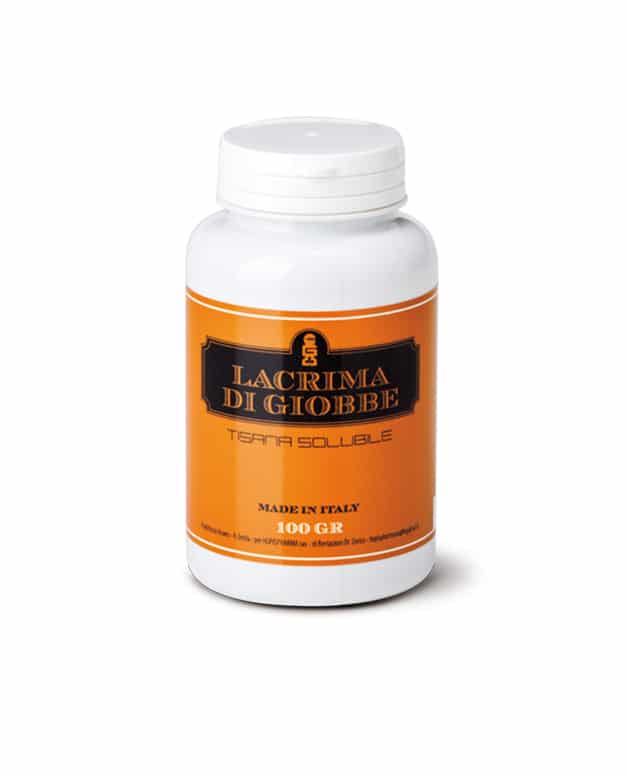Description
CHARACTERISTICS OF THE PRODUCT
Thanks to the medicated DIET products of Hopispharma the long oriental tradition of medicated meals is today more in line with the increasingly varied needs of westerners. Far-eastern culture and Chinese culture are depositories of the principle that food has a medicinal value: one example is Coix lacryma Jobi, present in this formulation, which is widely used both in pharmaceutical formulations and for cooking. According to Traditional Chinese Medicine Job’s Tear is an excellent tonic of Qi because it does not produce heat and disperses moisture without affecting the Yin. It would be ideally used at breakfast for a detoxifying and harmonizing effect.
Mandarin Zest promotes digestion, favors smooth gastrointestinal motility and the elimination of gas. It improves fluidification of bronchial secretions, relaxation and mental wellbeing. The ginger extract is active on digestion, with an anti-nausea effect. It promotes regular cardiovascular system function and blood circulation. Ginger has a positive effect on joint function and contrasts localized tensions.
We suggest you add Job’s Tear to vegetable soups, with a drop of extra virgin olive oil, preferably from the latest harvest, which moistens without wetting: please remember that we use a 10:1 extract so you can add a coffee spoon of it to your meal. Job’s Tear can effectively remove unhealthy water deposits accumulated for years: this herb dissolves negative energies that have built-up in water deposits accumulated inside the body.
The taste of a meal into a medication, we have gone beyond the classic formulation without disrupting it and we are really in the van offering the most effective and balanced doses. While enjoying a daily gesture you are already beyond the philosophy of nutraceuticals.
the indications according to traditional Chinese medicine do not in any way want to replace western medicine and medical advice.
INGREDIENTS
- VIGNA ANGULARIS (WILLD.) OHWI & H. OHASHI AZUKI 10:1
- COIX LACRYMA-JOBI L. EXTRACT 10:1
- CITRUS RETICULATA BLANCO EXTRACT 10:1
- ZINGIBER OFFICINALE ROSC. EXTRACT 10:1
HOW TO USE IT
Half a tea spoon in 250 ml of water, in the morning before breakfast and after one of the main meals. As an alternative, add it to vegetable soups, vegetable creams, soups or consommé, with a drop of extra virgin olive oil – better if from the harvest of the current year; the taste of a meal in a nutraceutical dish (1 teaspoon of tea every three servings).
During the day, drink fermented tea, such as Eikes Pu-erh-Tea: that would be perfect.
DAILY DOSES
Job’s Tears 1760 mg
Azuki 1760 mg
Mandarin Zest 400 mg
Ginger 80 mg
PACKAGE
100 g
PET white vase with re-closable seal cap
BIBLIOGRAFIA
Chen J, Weng W. Medicinal food: the Chinese perspective. J of Med Food 1998;1(2):117-122
Weng W, Chen J. The eastern perspective on functional foods based on traditional Chinese medicine. Nutrition Reviews 1996;54(11):S11-S16
Yin J. A Modern Study and Clinical Application of Chinese Medicine. Beijing:Publishing House of Ancient Book of Traditional Chinese Medicine, 1995, pp. 388-392.
Zhou JJ, Xie GR and Yan XJ. Handbook of Chemical ingredients of Chinese Traditional Medicines. Beijing: Chemical Industry Prerss, 2004; 1768, 1769, 9111.
Numata M, Yamamoto A, Moribayashi A, Yamada H. Antitumor components isolated from the Chinese herbal medicine Coix lachryma-jobi. Planta Med. 1994; 60(4):356-9.Kuo CC
Oh Sung Kwon, Myoung Seok Jeong, Bonglee Kim, and Sung-Hoon Kim, “Antiangiogenic Effect of Ethanol Extract of Vigna angularis via Inhibition of Phosphorylation of VEGFR2, Erk, and Akt,” Evidence-Based Complementary and Alternative Medicine, vol. 2015, Article ID 371368, 9 pages, 2015. doi:10.1155/2015/371368
- Mukai and S. Sato, “Polyphenol-containing azuki bean (Vigna angularis) seed coats attenuate vascular oxidative stress and inflammation in spontaneously hypertensive rats,” Journal of Nutritional Biochemistry, vol. 22, no. 1, pp. 16–21, 2011.
- Hori, S. Sato, and A. Hatai, “Antibacterial activity of plant extracts from azuki beans (Vigna angularis) in vitro,” Phytotherapy Research, vol. 20, no. 2, pp. 162–164, 2006.
- Jiang, K.-W. Zeng, B. David, and G. Massiot, “Constituents of Vigna angularis and their in vitro anti-inflammatory activity,” Phytochemistry, vol. 107, pp. 111–118, 2014.
- Camilleri, D. Dubois, B. Coulie et al., “Prevalence and socioeconomic impact of upper gastrointestinal disorders in the United States: results of the US upper gastrointestinal study,” Clinical Gastroenterology and Hepatology, vol. 3, no. 6, pp. 543–552, 2005.
- Kikuzaki and N. Nakatani, “Antioxidant effects of some ginger constituents,” Journal of Food Science, vol. 58, no. 6, pp. 1407–1410, 1993






